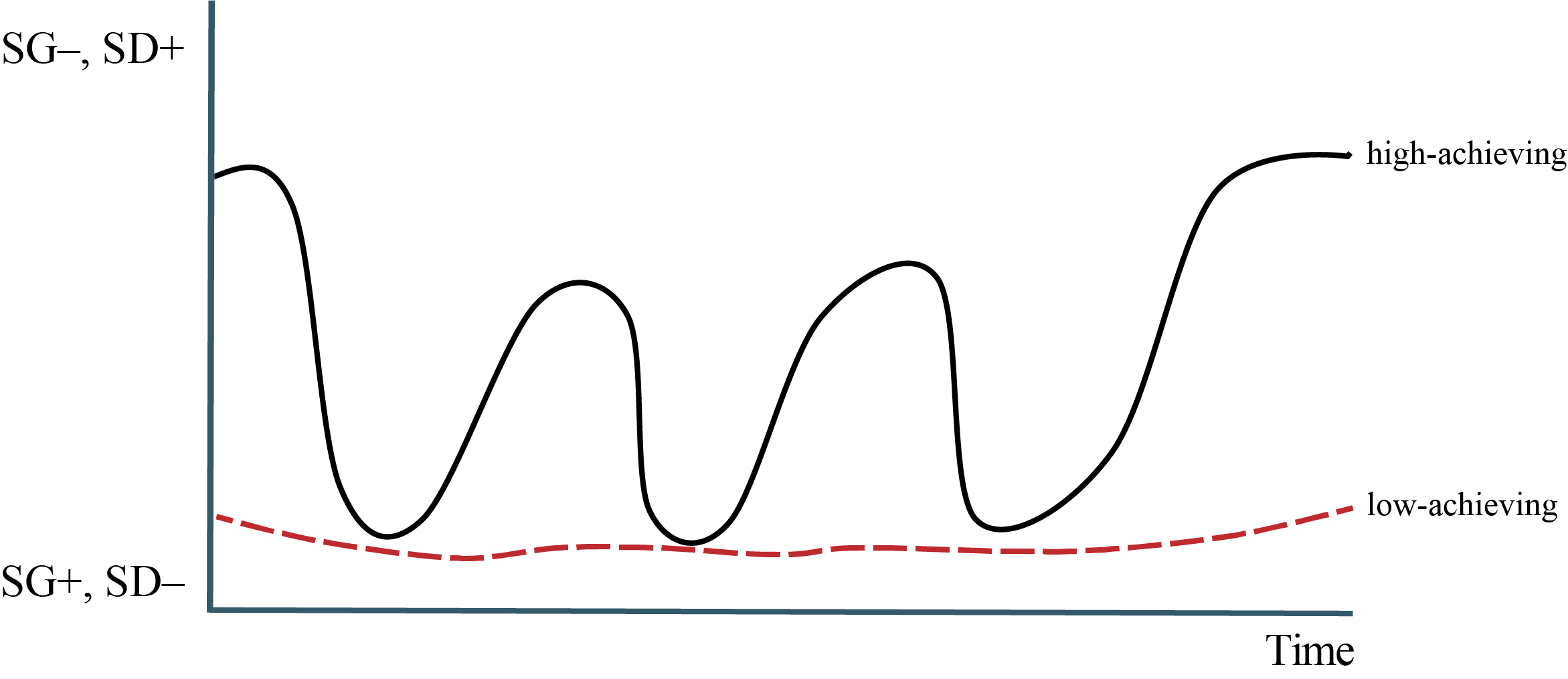
Legitimation Code Theory (LCT) is a sociological framework that offers a toolkit of concepts for revealing the ‘rules of the game’ or ‘codes’ shaping social practices. By making these often implicit bases for success explicit, LCT enables them to be taught and learned and, if desired, changed. LCT concepts can be used to analyse all kinds of educational practices across the disciplinary map and at all levels, from pre-school to university. Having a shared theoretical language enables researchers across diverse disciplines to bring together their findings on the underlying principles or ‘codes’ shaping achievement. LCT is being used around the world to develop strategies that promote equity and inclusivity, and improve teaching and learning.
In our computer science research, we have been using two LCT dimensions, Semantics and Autonomy. Semantic waves offer a simplified way to understand the patterns of knowledge creation revealed by the Semantics framework. Our research applies this concept in various contexts, including the design of unplugged classroom activities for teaching algorithms and using analogies like “variables are like a box” to make abstract concepts accessible. Additionally, we’ve explored how Semantics can be applied to create meaningful explanations for incorrect answers in database and SQL assessments, offering students valuable feedback.
We are starting to explore the Autonomy dimension of LCT. We think this dimension will be very important in computing education to help us analyse how other subjects and topics are used to teach with and through computing. Autonomy can be used to analyse the content and purpose of two knowledge practices, such as teaching computing and teaching Maths in the same lesson. We have used a case study approach to start our Autonomy research activity, analysing the teaching of CS with and through magic! We have presented on this at the LCT conference and have submitted this to an academic conference (watch this space).
Curzon, P., & Waite, J. (2024). The LCT semantics magic show: improving classroom practice using LCT. In Proceedings of the Fifth International Legitimation Code Theory Conference. (to be published shortly)
Curzon, P., & Waite, J. (2024). Autonomy analysis of cross-curricular teaching: turning LCT into pedagogy. In Proceedings of the Fifth International Legitimation Code Theory Conference. (to be published shortly)
Waite, J., & Curzon, P. (2024). Tear and share (explaining LCT to practitioners). In Proceedings of the Fifth International Legitimation Code Theory Conference. (to be published shortly)
Waite, J., Kolaiti, E., Thomas, M. and Maton, K. (2023). Constructing feedback for computer science MCQ wrong answers using semantic profiling. In Proceedings of the 23rd Koli Calling International Conference on Computing Education Research. (open-access author copy)
Waite, J. (2021). Is it a wave? Linking the abstract to the everyday and back again. In Understanding computing education (Vol. 1). Proceedings of the Raspberry Pi Foundation Research Seminars.
Curzon, P., Waite, J., Maton, K., & Donohue, J. (2020, October). Using semantic waves to analyse the effectiveness of unplugged computing activities. In Proceedings of the 15th Workshop on Primary and Secondary Computing Education (pp. 1-10). (open-access author copy)
Waite, J., Maton, K., Curzon, P., & Tuttiett, L. (2019, September). Unplugged computing and semantic waves: Analysing crazy characters. In Proceedings of the 2019 Conference on United Kingdom & Ireland Computing Education Research (pp. 1-7). (open-access author copy)